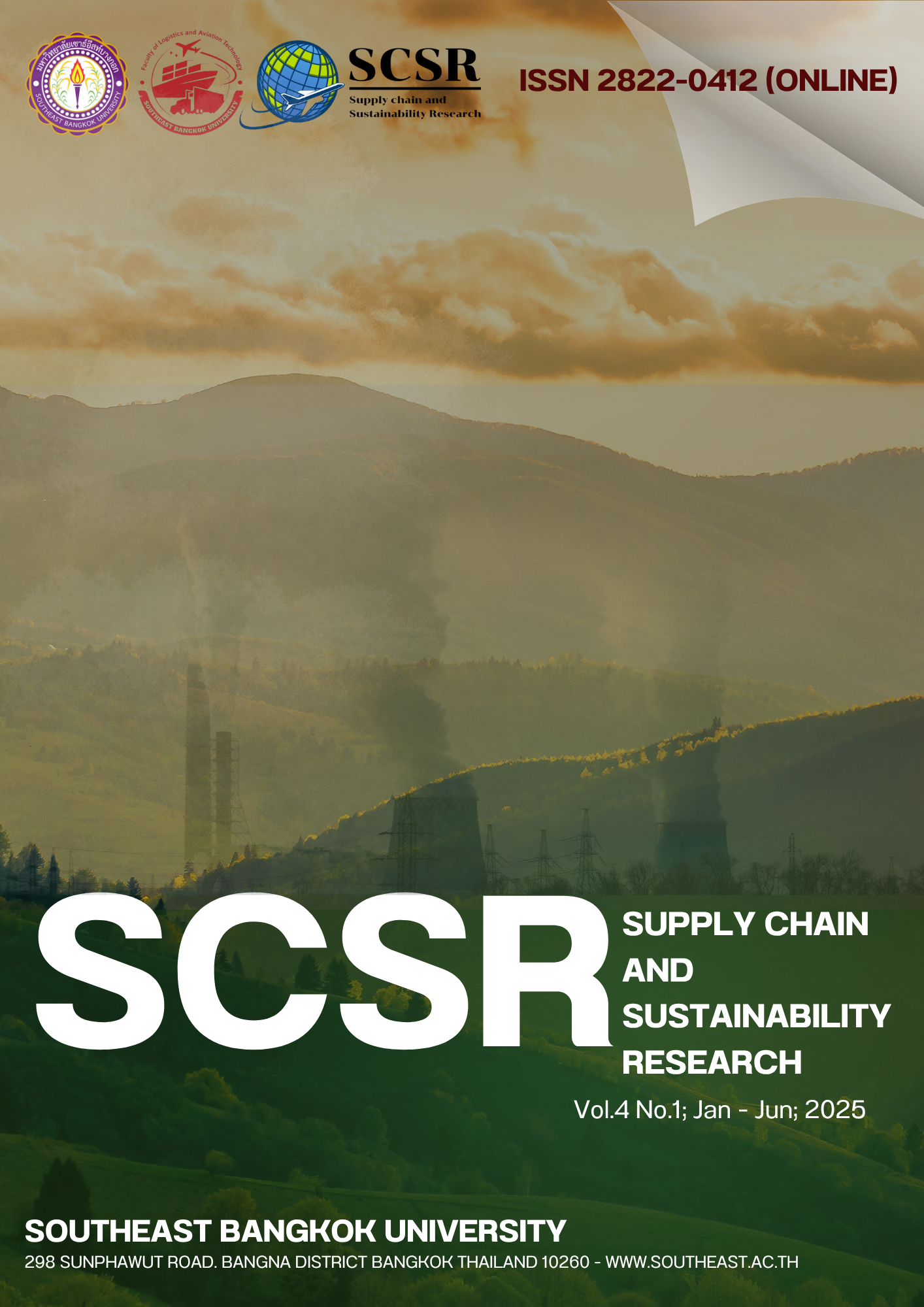The guiding role of the Internet economic supply chain management model based on management psychology on the negative emotions and behavioral mechanisms of interest
Main Article Content
บทคัดย่อ
Due to the imperfection of the market and legal environment, the supply chain stakeholders are prone to distrust each other, and worry about the dangers of the virtual supply chain will lead to anxiety, anxiety and other negative emotions. By using the knowledge of management psychology, this paper analyzes the psychology and behavior of the benefit audience, and puts forward the innovative mode of Internet economic supply chain management.The research object is the leaders of supply chain enterprises. Fifty four leaders of a supply chain were randomly selected to understand their basic personal information, their psychological status and their views on the supply chain management model of Internet economy, and to analyze the reasons for their negative emotions. In the processing and analysis of relevant data, SPSS software is used for data processing. Grade 1-5 is adopted, and the lower the score, the lighter the degree.The results showed that before the innovation of the supply chain management model, the research subjects of all three age groups showed higher scores in the dimensions of anxiety, unease, and tension, with small differences in scores. However, after the experimental intervention, the negative emotions exhibited by the research subjects were improved to varying degrees, with the maximum change in score being 26 points. The data showed significant statistical differences compared to before the experiment (P<0.05).The management inspiration is that through rapid response and flexible management, it realizes the information transmission with zero time delay, meets the requirements of customers, improves the market competitiveness, earns more benefits for the benefit audience, and relieves the negative emotions of the benefit audience.
Article Details

อนุญาตภายใต้เงื่อนไข Creative Commons Attribution-NonCommercial-NoDerivatives 4.0 International License.
บทความนี้ได้รับการเผยแพร่ภายใต้สัญญาอนุญาต Creative Commons Attribution-NonCommercial-NoDerivatives 4.0 International (CC BY-NC-ND 4.0) ซึ่งอนุญาตให้ผู้อื่นสามารถแชร์บทความได้โดยให้เครดิตผู้เขียนและห้ามนำไปใช้เพื่อการค้าหรือดัดแปลง หากต้องการใช้งานซ้ำในลักษณะอื่น ๆ หรือการเผยแพร่ซ้ำ จำเป็นต้องได้รับอนุญาตจากวารสารเอกสารอ้างอิง
Guo Y, Liu B, Luo H. Discussion on the Strategy of Improving the Teaching Effect of Management Psychology —Based on Expected Value Theory[J]. Education Study, 2021, 3(1):55-60.
Guo Y, Liu B, Luo H. Discussion on the Strategy of Improving the Teaching Effect of Management Psychology —Based on Expected Value Theory[J]. Education Study, 2021, 3(1):55-60.
Bhasin M K. Behavioral Risk Management: Managing the Psychology That Drives Decisions and Influences Operational Risk[J]. Financial Analysts Journal, 2018, 74(1):108-109.
Kurbanova N. On the role of the leader in management psychology[J]. Bulletin of Science and Practice, 2019, 5(3):383-386.
Yang C, Hu X, Gu W, et al. Research on the Construction of SPD Intelligent Logistics[J]. Chinese Journal of Medical Instrumentation, 2019, 43(6):462-465.
Aripova N. Tasks of Situational Analysis in Psychology of Management[J]. Bulletin of Science and Practice, 2020, 6(4):388-393.
Mekonen EG, Workneh BS, Ali MS, et al. The Psychological Impact of COVID-19 Pandemic on Graduating Class Students[J] Psychology Research and Behavior Management, 2021, Volume 14:109-122.
Mimiaga M, Closson E, Pantalone D, et al. Applying behavioral activation to sustain and enhance the effects of contingency management for reducing stimulant use among individuals with HIV infection.[J]. Psychology, health & medicine, 2019, 24(3):374-381.
Rezayat M. R., Yaghoubi S, Fander A. A hierarchical revenue-sharing contract in electronic waste closed-loop supply chain - ScienceDirect[J]. Waste Management, 2020, 115:121-135.
Riyadi I.The Conitribution of applied psychology for educational management issue [J]. Psychosophia Journal of Psychology Religion and Humanity, 2020, 1(2):136-149.
Karamchandani K, Dubule V K. Job Anxiety and Occupational Stress among Employees of IT Sector: Impact on their Attitude towards Management[J]. International Journal of Engineering and Management Research, 2020, 10(3):37-44.
Mansiroglu A K, Erer M, Cogun M, et al. Is ionizing radiation a risk factor for anxiety in employees[J].Revista da Associação Médica Brasileira, 2020, 66(12):1685-1689.
Keilman L J, Harris M, Bronner S. 300 - Increasing Complexity Awareness of Parkinson Disease Psychosis: Risk Factors, Symptoms, Diagnosing And Management[J]. International Psychogeriatrics, 2021, 33(S1):19-20.
Kensbock J M, Alkrsig L, Lomberg C. The Epidemic of Mental Disorders in Business—How Depression, Anxiety, and Stress Spread across Organizations through Employee Mobility:[J]. Administrative Science Quarterly, 2022, 67(1):1-48.


